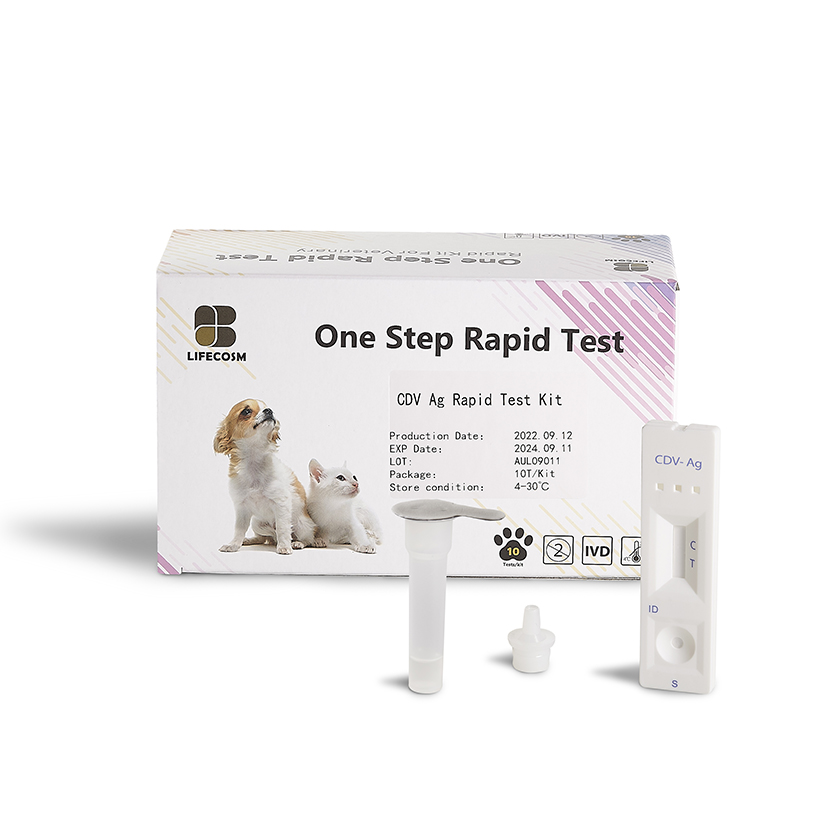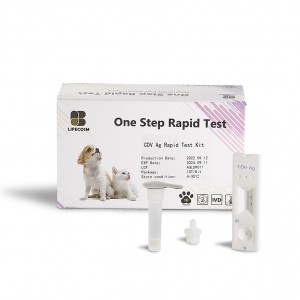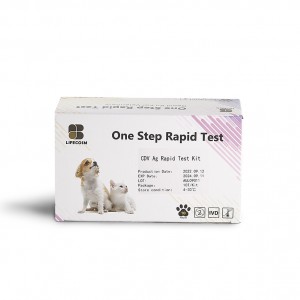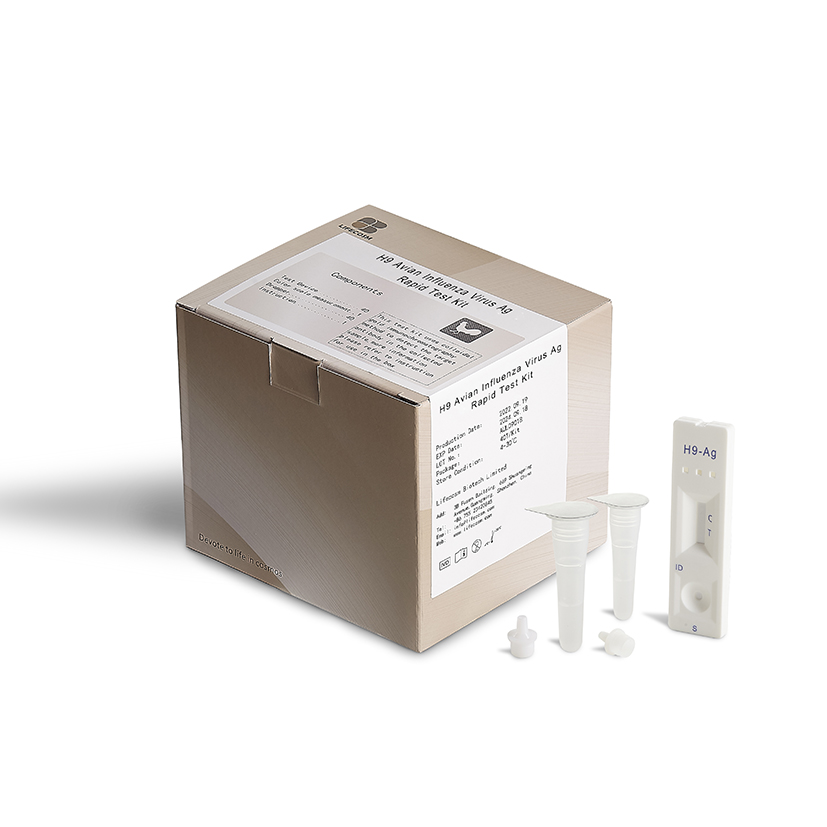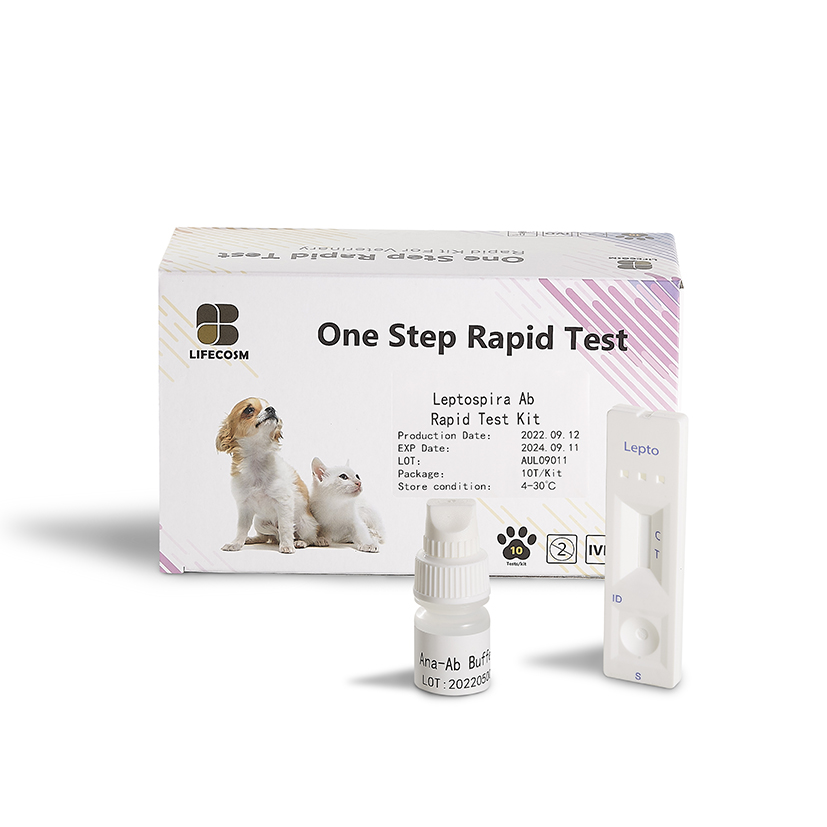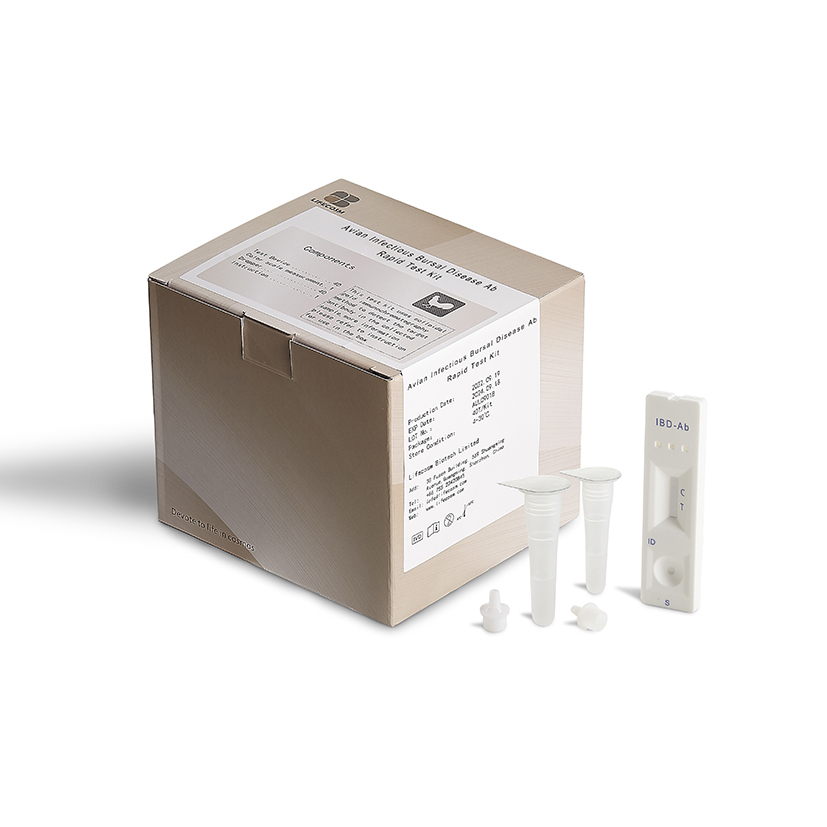
Products
Lifecosm Canine Distemper Virus Ag Test Kit for Pet test
CDV Ag Test Kit
|
Canine Distemper Virus Ag Test Kit |
|
| Catalog number | RC-CF01 |
| Summary | Detection of specific antigens of canine distempervirus within 10 minutes |
| Principle | One-step immunochromatographic assay |
| Detection Targets | Canine Distemper Virus (CDV) antigens |
| Sample | Canine ocular discharge and nasal discharge |
| Reading time | 10~ 15 minutes |
| Sensitivity | 98.6 % vs. RT-PCR |
| Specificity | 100.0 %. RT-PCR |
| Quantity | 1 box (kit) = 10 devices (Individual packing) |
| Contents | Test kit, Buffer bottles, Disposable droppers, and Cotton swabs |
| Caution | Use within 10 minutes after opening Use appropriate amount of sample (0.1 ml of a dropper) Use after 15~30 minutes at RT if they are stored under cold circumstances Consider the test results as invalid after 10 minutes |
Information
Canine distemper poses a severe threat to dogs, in particular puppies, which are severely exposed to the disease. When infected, their fatality rate reaches 80%. Adult dogs, though rarely, can be infected with the disease. Even cured dogs suffer from long-lasting harmful effects. The breakdown of the nervous system can aggravate the senses of smell, hearing, and sight. Partial or general paralysis can be easily triggered, and complications such as pneumonia can occur. However, canine distemper is not transmitted to human beings.


>> Inclusion bodies composed of virus nucleocapsids are dyed in blue with red and white cells.
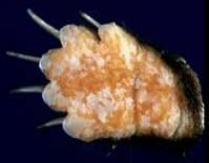
>> Excessive formation of keratin and para- keratin on the sole of a foot devoid of hairs is shown.
Symptoms
Canine distemper is easily transmitted to other animals through viruses. The disease can occur through contact with the discharges of respiratory organs or urine and feces of infected puppies.
There are no specific symptoms of the disease, a main reason for the ignorance or delay of treatment. Common symptoms include a cold with high fever that could develop into bronchitis, pneumonia, gastritis, and enteritis. In early stage, squint, bloodshot eyes, and eye mucus are an indicator of the disease. Weight loss, sneeze, vomiting, and diarrhea are also easily examined. In late stage, viruses infiltrating the nervous system trigger partial or general paralysis and convulsion. Vitality and appetite can be lost. If the symptoms are not severe, the disease can deteriorate with no treatments. Low fever only can occur for two weeks. Treatment is hard after several symptoms including pneumonia and gastritis are shown. Even if the infection symptoms disappear, the nervous system may malfunction several weeks later. The rapid proliferation of viruses causes the formation of keratins on the sole of a foot. The fast examination of puppies suspected of suffering from the disease is recommended according to the various symptoms.
Prevention and treatment
Puppies which recover from a virus infection are immune from it. However, it is very rare for the puppies to survive after being infected with the virus. Therefore, vaccination is the safest way.
Puppies born of dogs immune against canine distemper have immunity from it, too. The immunity can be obtained from milks of mother dogs during several days after birth, but it is different depending on the amount of antibodies that the mother dogs have. After that, the immunity of puppies decreases rapidly. For the appropriate time for vaccination, you should seek consultation with veterinarians.

